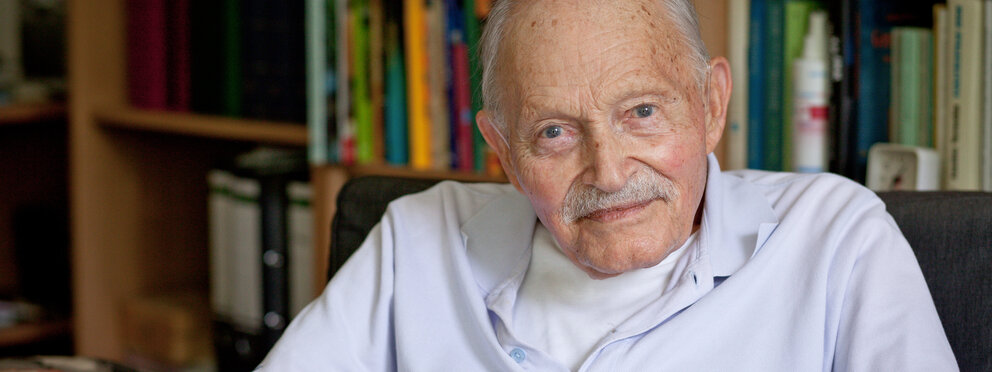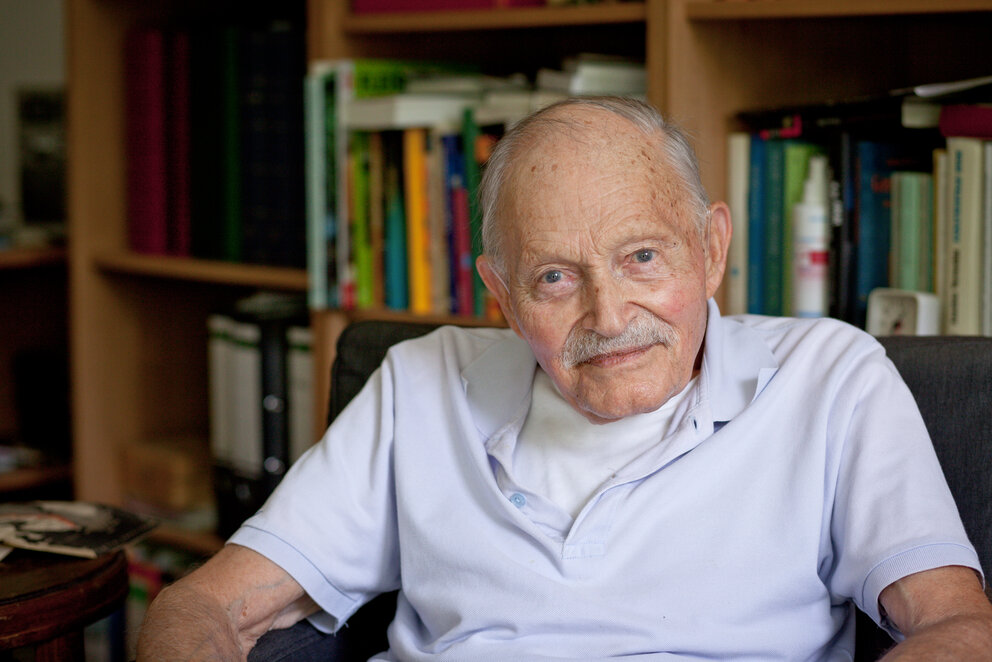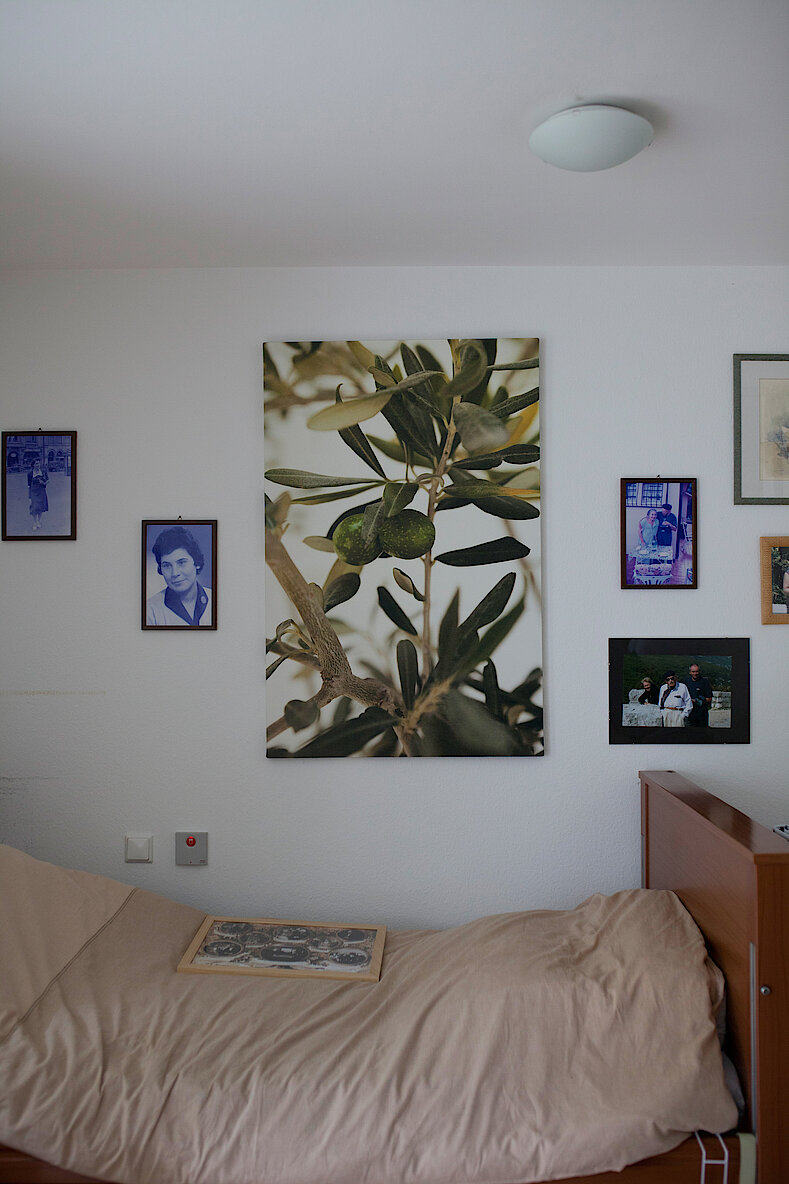
Carlo Lietz
About Carlo Lietz
Carlo Lietz was born in Berlin on 26 June 1925, the son of staunch National Socialists, and soon moved to Trier. He marched and sang along to Hitler Youth events with childlike enthusiasm. His first doubts arose in 1942 when he witnessed the humiliation of Luxembourgers during a military training camp. In autumn 1943, Carlo Lietz was drafted into the army, where he saw a concentration camp transport for the first time. In June 1944, he finally turned his back on Nazi ideology and eventually deserted.
After the war, he was a prisoner of war in England until 1947. He met his wife in 1949. He took over his father's business in Trier and was finally able to fulfil his dream of emigrating to Italy with his wife in 1978. Here they found a shared paradise among olive trees, bottles of wine and partisan songs. Carlo Lietz spent his last years in a retirement home in Frankfurt am Main, where he died in 2015.
"People looked at me... Silently. That still comes to me at night... [...] "They're not people," he says, "they're vermin. They're parasites. They're Jews from Hungary and they're being chased down the chimney in Auschwitz." "What?" I say, "They're people!" "Boy, shut up, otherwise you can just ride along here!" So that's what happened to me. I'm not going on any more."

A Picture to live on
This large picture of olive trees hung above Carlo Lietz's bed - a window into his "Paradiso", where he would always disappear into in his thoughts. Italy was his refuge. After Germany had disappointed him so deeply, he found a home there. The consistent confrontation with his past and the equally consistent rejection of all forms of racism and anti-Semitism have become an important part of him. And so olives, sunshine, lots of garlic and, above all, a unique attitude to life have helped him to come to terms with the experiences of his childhood and youth and move on.

Our encounter
Karl-Heinz Lietz introduced himself to us with Carlo. It was the result of a decision he had made many years ago. He had become an Italian, the logical consequence of his experiences in post-war Germany. His rambling stories were always accompanied by expansive gestures and expressive facial expressions. Carlo not only answered our questions, he relived memories, shared stories and gave away wisdom. And he had a lot to give. He could talk and philosophise for hours and hours with anyone who was willing to listen. He always met his dialogue partners as equals.
In addition to his great passion for good conversation, Carlo had a unique flair for the little pleasures in life - he was a man of pleasure. "I've found my paradise," he smiled, as if he could see it in front of him at that very moment. His paradise was the garden of his villa in northern Italy. The cleaners and nurses at the Budge Foundation liked to bring Carlo garlic and vegetables from their own garden. In return, Carlo gifted anyone who appreciated it with good wine from his cellar. On some evenings, he invited the ladies from the neighbourhood to a wine tasting. "I'm not allowed to drink wine anymore. But I like to smell it," he said with a wink.
Carlo Lietz passed away on 3 August 2015. We remember a man who let his actions speak for themselves throughout his life. Carlo was non-denominational and yet deeply religious: "I believe in a God without party colours." He lived by this motto, and I don't know anyone who lived out the Judeo-Christian guiding principle "Love your neighbour as yourself" so consistently. For Carlo, charity was not an abstract construct, it was a programme. His life was characterised by the decisions that resulted from it. We are grateful that these decisions ultimately led him to us and that we were able to learn what humanity means through him.
